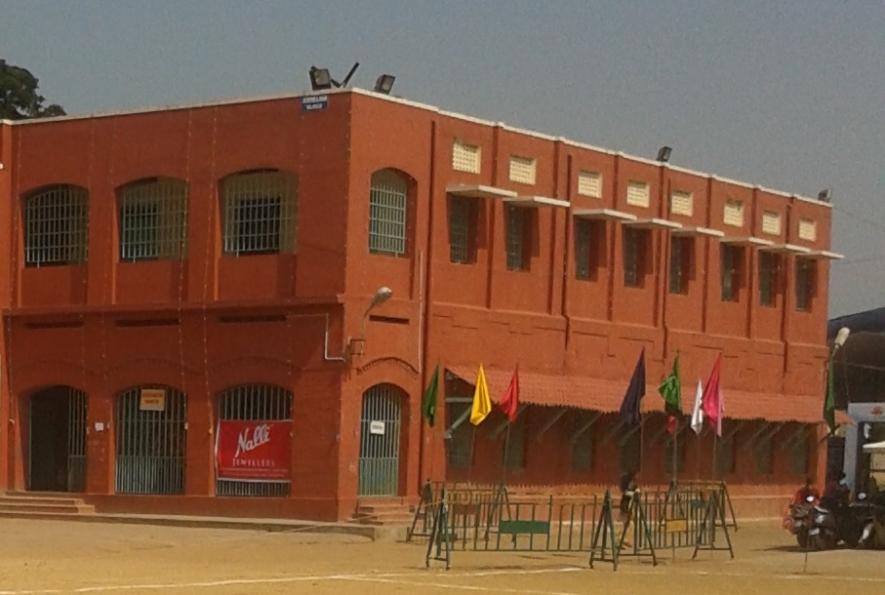PUCL Report: At least 700 Muslim Girls Denied Entry into Classrooms in 2022
‘other reasons’

Image Courtesy: Wikimedia Commons
Bengaluru: A report by the People’s Union for Civil Liberties (PUCL) says that at least 700 Muslim girls in Karnataka were either barred entry into classrooms or suspended by their institutions for refusing to unveil themselves. The report comes on the heels of the Supreme Court’s split verdict on the Hijab ban case (Aishat Shifa vs the State of Karnataka) which ensured that Hijabs remain restricted inside Karnataka’s classrooms. The report recommends immediate programs providing mental health support for girls students adversely affected by these events.
Data now confirms that the Bharatiya Janata Party (BJP) government’s order (during the end of the academic term) to ban hijab inside classrooms, resulted in the exclusion of Muslim girls from educational spaces in Karnataka. 1010 girls between the ages of 17 and 18 have left college altogether due to the ban on hijab as well as ‘other reasons’. Bengaluru South and Bengaluru North taluks saw the highest number of dropouts. 828 girls were in the first PUC (11th standard) at the time of dropping out. This is a reply provided by Education Minister BC Nagesh to a question posed in the assembly by the Congress MLA Sowmya Reddy.
In order to compile this report, the PUCL team visited multiple institutions across five districts of Karnataka- Hassan, Dakshina Kannada, Raichur, Udupi and Shimoga. They compiled testimonies of students, administrators and educators in order to get a clearer
picture of the situation.
“We did what we were instructed by higher authorities”
This seemed to be a common theme at various institutions visited by the PUCL team. They find that “undocumented instructions to college principals and administrators to impose a ban led to disarray and abuse of power over students of the minority community.” Some college authorities told the PUCL team that they were “caught between protecting the interests of the minority students and the pressure from higher authorities.”
Campus Battleground
College campuses were securitised with CCTV cameras inside the premises, while police vans were parked outside the gates. In the
communally sensitive coastal Karnataka region, daily updates were being sent by the school to the local police stations. Following the
Karnataka HC verdict (dismissing all petitions against the hijab ban inside classrooms), police presence was ensured within the campus as well. The report notes that in the Tumkur district, the police registered FIRs against students who refused to remove the hijab. However, the Police have denied entering the campus premises to enforce the ban.
Threats from Hindu classmates
The PUCL report details the environment of fear and social isolation to which the girls were subjected. Their Hindu classmates were
mobilised by Hindutva groups. They were made to attend rallies and marches wearing saffron shawls. Some were posting threatening messages on their WhatsApp groups. Even in the face of physical threats, the report alleges that the college authorities did not intervene to ensure the safety and well-being of their students. Loss of friendships and the total absence of fraternity have taken a toll on the mental health of Muslim girl students. The report recommends immediate programs to assist children in severe mental distress.
Role of Ministers
The report notes that the education minister, BC Nagesh “played a central role in perpetuating the relentless harassment of Muslim
students and causing great prejudice towards the community.” BC Nagesh justified the use of saffron shawls as a response to the wearing of hijab inside classrooms. On multiple occasions, BJP ministers were issuing provocative and communally charged statements to the media. The report suggests that the shocking state of governance in the state had put the lives of Muslim students in danger. BJP MLA Basanagouda Patil Yatnal, for example, said that students insisting on wearing hijab should go to Pakistan.
Media Ambush
The local Kannada news media plumbed new depths as tv crews and journalists began barging inside classrooms while classes were in session. Many videos went viral where video journalists can be seen chasing hijab-clad girls into the campus in order to get a better shot. Minority institutions were targeted and teachers were harassed inside the campus premises. Basic media norms and ethics were ignored and images of minor girls were flashed on the television screen.
As the Muslim girls resorted to protests, TV news programs became even more insidious and began drawing links between the protesting hijabi girls and ISIS. Many BJP ministers began making the assertion that the protests against the hijab ban were being organised by Islamic terrorist groups. PUCL found that the situation left a deep psychological impact on the girls.
Conclusion of the Report
University spaces promote the value of fraternity between students and are training grounds for citizenship, where students develop a shared understanding of how society works. However, the Muslim girls in Karnataka were made to face violent exclusion and social isolation. Muslim women across the state wished to go to classes without harassment. They were not only denied their right to education, but also their right to dignity.
Get the latest reports & analysis with people's perspective on Protests, movements & deep analytical videos, discussions of the current affairs in your Telegram app. Subscribe to NewsClick's Telegram channel & get Real-Time updates on stories, as they get published on our website.
























